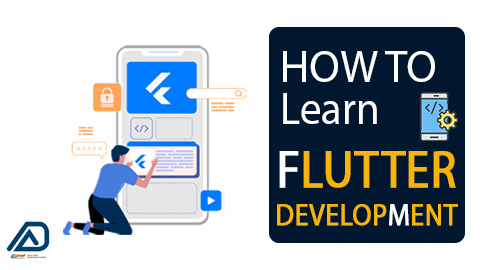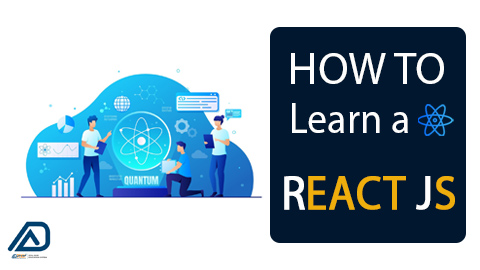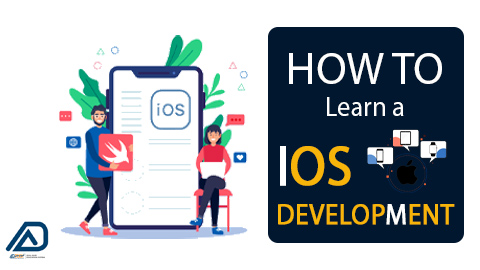Popular Topics
Machine Learning
python
Flutter
Application Development (Android)
What is Scope of Shopify in India?
full stack
What is React Netive Development?
What is iOS Development?
Learn Android development in my area
Web design institutes nearby
Android Development
Flutter Development
Netive
Full-Stack web development institutes in Surat
Learn Shopify in my area
Python courses in Surat
Application Development (Flutter)
Learn React Native development in my area
Back-end Development
Android development classes nearby
liquid programming
What is Python?
Application Development
What is Shopify?
React Native development training at Adtech
iOS Development in India
Data Science
E-commerce platform
Adtech React Native development workshops
Best Python training in Surat
Learn iOS Development near me
Surat web design services
Surat programming-oriented web development classes
Python training center in Surat
Web Development
Android development workshops at Adtech
Adtech iOS Development training
Front-end Development
Python education near me
Web design classes nearby
Learn Python classes nearby
Learn web development
Application Android
Top Python courses in Surat
becoming an iOS developer
iOS Development courses Surat
Web design training at Adtech
Android Development classes Adtech
iOS Development program Adtech
cross-platform development
Android development courses nearby
Leading Python classes in Surat
Learn web design at Adtech
Adtech Android development courses
iOS Development classes Adtech
React Native app development classes nearby
Shopify development courses
iOS Development classes in near me
Best web design company Surat
Adtech Full-Stack web development courses
Web design classes Adtech
Best Android development training at Adtech
Learn iOS Development at Adtech
Local React Native development workshops
Web design courses Surat
Full-Stack web development training at Adtech
Adtech web design workshops
React Native application training close to me
Web design training in Surat
Python courses nearby
Learn Full-Stack web development at Adtech
Learn .NET in Adtech Institute
Adtech Android app development programs
iOS Development courses at Adtech
Surat website designers
Full-Stack web development classes Adtech
Shopify Development
Top-rated iOS Development near me
React Native development institutes nearby
Adtech Full-Stack web development workshops
Local Android development workshops
Leading iOS Development courses nearby
Adtech React Native development courses
Web design training close to me
Python institute in my area
Android development training close to me
Premier iOS Development training near me
Why Python Language is Important?
Surat Full-Stack web development courses
Web design courses in the vicinity
Android app development courses in the vicinity
Best-in-class iOS Development programs in my area
Learn React Native development at Adtech
Best Full-Stack web development training Surat
React Netive Development in India
Android development institutes nearby
Expert iOS Development classes nearby
React Native development classes Adtech
Full-Stack programming courses Surat
Adtech web design courses
creating application
React Native
Shopify training at Adtech
Popular Instructors
All Programing Oriented Courses
Shopify Development
What is Shopify? Shopify is an e-commerce platform that allows …
What you'll learn
Store setup: Learn how to create and customize Shopify stores using themes, templates, and design tools to create visually appealing and user-friendly storefronts.
Product management: Gain knowledge on adding and organizing products, including product descriptions, images, variants, and pricing, to effectively showcase merchandise to customers.
Payment processing: Understand how to set up payment gateways, configure shipping options, and manage taxes to facilitate seamless transactions and order fulfillment.
Order management: Learn how to process orders, manage inventory levels, and fulfill customer orders efficiently to ensure timely delivery and customer satisfaction.
Marketing and sales: Explore strategies for driving traffic to your Shopify store, including search engine optimization (SEO), social media marketing, email marketing, and paid advertising campaigns to attract and retain customers.
Customer engagement: Discover techniques for engaging with customers through personalized experiences, including customer support, live chat, email newsletters, and loyalty programs, to build lasting relationships and drive repeat business.
Analytics and insights: Utilize Shopify's built-in analytics tools to track store performance, monitor sales trends, and gain actionable insights into customer behavior to optimize marketing efforts and improve overall business operations.
App integration: Learn how to leverage Shopify's extensive app ecosystem to extend the functionality of your store, including apps for inventory management, marketing automation, analytics, and more, to enhance the customer experience and streamline operations.
.NET Development
What is .NET? .NET is a software development framework developed …
What you'll learn
Programming languages: .NET supports multiple programming languages such as C#, Visual Basic, allowing you to choose the language that best fits your project requirements.
NET Framework: Learn about the core components and libraries provided by the .NET Framework for building applications.
.NET Core: Gain knowledge of .NET Core, which is a cross-platform and open-source version of .NET that enables you to build applications that can run on Windows, Linux, and macOS.
Entity Framework: Learn about Entity Framework for object-relational mapping (ORM) and database access in .NET applications, simplifying data access and management tasks.
Web Development (Full-Stack)
What is Web Development? web development is the process of …
What you'll learn
Understanding Web Fundamentals
Mastering Front-end Development
Exploring Back-end Development
Version Control and Collaboration
Database Management
Responsive and Mobile Design
Flutter Development
What is Flutter Development? Flutter is an open-source UI (User …
What you'll learn
arning objectives in Flutter are concise statements that outline what you aim to achieve while learning Flutter development. These objectives guide your learning process and help you focus on key skills and knowledge areas. Here's a short note on common learning objectives in Flutter
Flutter Fundamentals: Understand the core concepts of Flutter, including widgets, layouts, and UI components.
Dart Programming: Learn the Dart programming language, which is essential for Flutter development.
User Interface Design: Master designing user interfaces with Flutter widgets, understanding layout principles, and creating responsive designs.
State Management: Explore various state management techniques and choose the right one for your app's complexity.
Navigation: Implement navigation and routing between screens in your Flutter app.
Data Handling: Work with data sources, APIs, and databases to fetch and display information in your app.
Flutter Animation: Create engaging animations and transitions to enhance user experience.
Testing and Debugging: Write tests to ensure the reliability of your app and troubleshoot issues effectively.
Platform-specific Features: Learn to integrate platform-specific features and plugins for Android and iOS.
App Deployment: Understand the app packaging and publishing process for Google Play Store and Apple App Store.
Performance Optimization: Optimize your Flutter app for better performance and responsiveness.
Continuous Learning: Stay updated with Flutter's evolving ecosystem, explore new packages, and engage with the community.
Real-world Projects: Apply your skills to build practical Flutter apps, gaining hands-on experience.
Open-source Contribution: Contribute to open-source Flutter projects to deepen your understanding and collaborate with the community.
Problem Solving: Develop the ability to solve common issues and challenges in Flutter development.
Android Development
What is Android Development? Android development refers to the process …
What you'll learn
When learning Android development, you'll acquire a set of skills and knowledge that enables you to create mobile applications specifically for the Android platform. Android development involves various aspects of software development, user interface design, and working with the Android operating system
Java or Kotlin: You'll learn one of the primary programming languages for Android app development, Java or Kotlin. Both languages are used to write the code that powers Android apps, with Kotlin gaining popularity for its modern and concise syntax.
Android Studio: Android Studio is the official integrated development environment (IDE) for Android development. You'll become proficient in using this tool to write code, design user interfaces, test, and debug your Android applications.
Activities and Fragments: Android apps are structured around activities, which represent different screens or windows. You'll learn how to create activities and use fragments to build flexible and responsive user interfaces.
Intents: You'll understand how to use intents to facilitate communication between different components of your app and between different apps. Intents are used to request actions or services from other parts of the app or from other apps.
android Manifest: The AndroidManifest.xml file is a crucial configuration file that describes essential information about the app, such as its components, permissions, and version.
Networking: Understand how to make network requests and integrate data from web services and APIs into your Android app.
Testing and Debugging: Proficiency in testing your app using the Android Emulator and real devices, as well as debugging and troubleshooting issues in your code.
Material Design Guidelines: Familiarize yourself with Google's Material Design guidelines to create apps with a consistent and modern look and feel.
Offline Support: Learn how to build apps that work offline or in low-network conditions.







